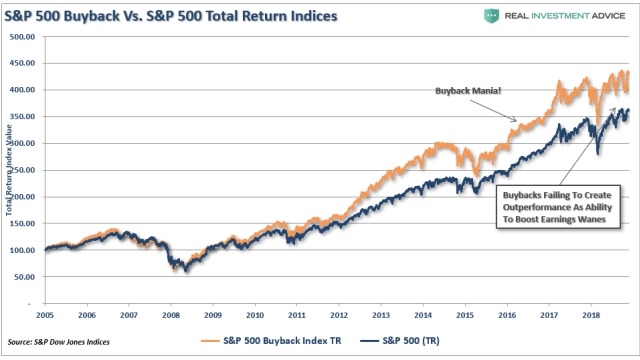
In today’s fast-paced corporate landscape, the concept of corporate buybacks has gained tremendous momentum. As businesses continually strive for growth and optimize their resources, they are increasingly turning to corporate buybacks as a viable strategy. These buybacks involve companies repurchasing their own shares in the open market, effectively reducing the number of outstanding shares and reallocating capital. However, the impact of such buybacks extends beyond mere financial implications, delving into new realms of corporate IT asset disposal and sustainability.
Enter "SellUp’s" Corporate Buyback program, an innovative solution that addresses the growing need for efficient, profitable, and environmentally responsible disposal of old IT assets. As organizations frequently upgrade their technological infrastructure, the question of how to ethically and responsibly dispose of outdated IT assets becomes a pressing concern. This is where "SellUp’s" Corporate Buyback program comes into play, offering a comprehensive solution that not only benefits businesses but also plays a pivotal role in minimizing electronic waste and promoting a circular economy.
By partnering with SellUp, organizations can navigate the complexities of corporate buybacks with ease. SellUp’s expert team assists companies in understanding the value of their old IT assets and devises a tailored strategy to maximize returns on these investments. Moreover, their commitment to environmental sustainability goes beyond financial gains, as they ensure that any disposed IT assets are ethically recycled or repurposed, minimizing the negative impact on the environment.
With the rapid growth of the corporate buyback trend, it is crucial for businesses to consider the long-term consequences of their actions. By embracing SellUp’s Corporate Buyback program, organizations not only unlock substantial financial benefits but also contribute to a more sustainable future. Together, we can reshape the corporate landscape by embracing innovative solutions that prioritize profitability without compromising environmental responsibility.
The Rise of Corporate Buybacks
In recent years, the practice of corporate buybacks has seen a significant surge in popularity. Once seen as a relatively rare occurrence, buyback programs have now become a widespread strategy employed by companies looking to manage their finances and maximize shareholder value.
At the heart of this trend is the desire for companies to use their excess cash to repurchase their own shares from the market. By doing so, they effectively decrease the number of outstanding shares, which often leads to an increase in share prices. This can result in immediate benefits for shareholders, making buybacks an attractive option for companies looking to reward their investors.
One industry that has been particularly impacted by this phenomenon is the IT sector. As technology continues to evolve at a rapid pace, businesses find themselves needing to upgrade their IT assets more frequently. This presents a challenge when it comes to disposing of the old equipment responsibly. Thankfully, innovative solutions like "SellUp’s" Corporate Buyback program have emerged to address this issue.
By offering a streamlined and environmentally conscious process for businesses to sell their outdated IT assets, these buyback programs have proved to be highly efficient and profitable. Not only do companies benefit from recouping some of their investment, but they also contribute to the reduction of electronic waste, promoting a more sustainable approach to IT asset disposal.
The rise of corporate buybacks, with a focus on initiatives like "SellUp’s" Corporate Buyback program, highlights the growing awareness among businesses of the need for responsible and financially savvy asset management. As the trend continues to gain momentum, it is clear that corporate buybacks are here to stay, shaping the landscape of both finance and environmental sustainability in the corporate world.
Benefits of SellUp’s Corporate Buyback Program
SellUp’s Corporate Buyback Program offers numerous benefits for businesses seeking to dispose of their old IT assets. By participating in this program, companies can enjoy enhanced efficiency, increased profitability, and contribute to environmental responsibility.
Visit Website
Firstly, participating in SellUp’s Corporate Buyback Program allows businesses to streamline their IT asset disposal process. Rather than engaging in time-consuming and uncertain methods of asset disposal, such as selling to individual buyers or relying on auctions, companies can simply leverage SellUp’s program for a seamless and hassle-free experience. This saves valuable time and resources, enabling businesses to focus on their core operations.
Secondly, SellUp’s Corporate Buyback Program presents a lucrative opportunity for companies to maximize their profitability. By selling their old IT assets through this program, businesses can fetch competitive prices that reflect the value of their equipment. SellUp’s extensive network and expertise in the industry allow them to provide fair market prices, ensuring that companies receive the best possible returns for their assets.
Lastly, SellUp’s Corporate Buyback Program aligns with environmental responsibility initiatives. The program extends the lifecycle of IT assets by refurbishing and reselling them, reducing the need for new manufacturing. By choosing to sell their old equipment through SellUp, companies actively contribute to minimizing electronic waste and its harmful impact on the environment. This commitment to sustainability not only benefits the planet but also enhances the corporate image and reputation of participating businesses.
In conclusion, SellUp’s Corporate Buyback Program offers businesses a range of compelling advantages. From simplifying IT asset disposal and maximizing profitability to actively promoting environmental responsibility, this program presents a win-win solution for companies seeking to transition from old to new technology.
The Environmental Impact of Corporate IT Asset Disposal
Old IT assets can have a significant environmental impact if not properly disposed of. When companies upgrade their technology, it often leads to a large number of discarded electronics. These electronic devices contain hazardous materials such as lead, mercury, and cadmium, which can be harmful to the environment if they end up in landfills or incinerators.
Fortunately, SellUp’s Corporate Buyback program comes into play, offering an efficient, profitable, and environmentally responsible solution for businesses seeking to dispose of their old IT assets. By participating in this program, companies can ensure that their outdated technology is properly recycled and its components are reused or disposed of in an environmentally friendly manner.
Not only does SellUp’s Corporate Buyback program help businesses minimize their carbon footprint, but it also promotes a more circular economy. Instead of simply discarding old IT assets and contributing to electronic waste, these assets are given a second life. The program facilitates the refurbishment and resale of usable devices, reducing the need for the production of new electronics and the associated environmental impact.
In addition, SellUp’s program prioritizes the safe and responsible disposal of electronic waste. Through certified recycling partners, they ensure that hazardous substances are extracted and treated properly, minimizing any potential harm to the environment and human health. By adhering to strict environmental regulations and standards, this buyback program plays a crucial role in reducing the negative environmental consequences of IT asset disposal.
SellUp’s Corporate Buyback program not only offers financial benefits to businesses but also helps mitigate the environmental impact of corporate IT asset disposal. By choosing this program, companies can contribute to a sustainable future by responsibly managing their old technology and preventing it from ending up in landfills or being improperly handled.



